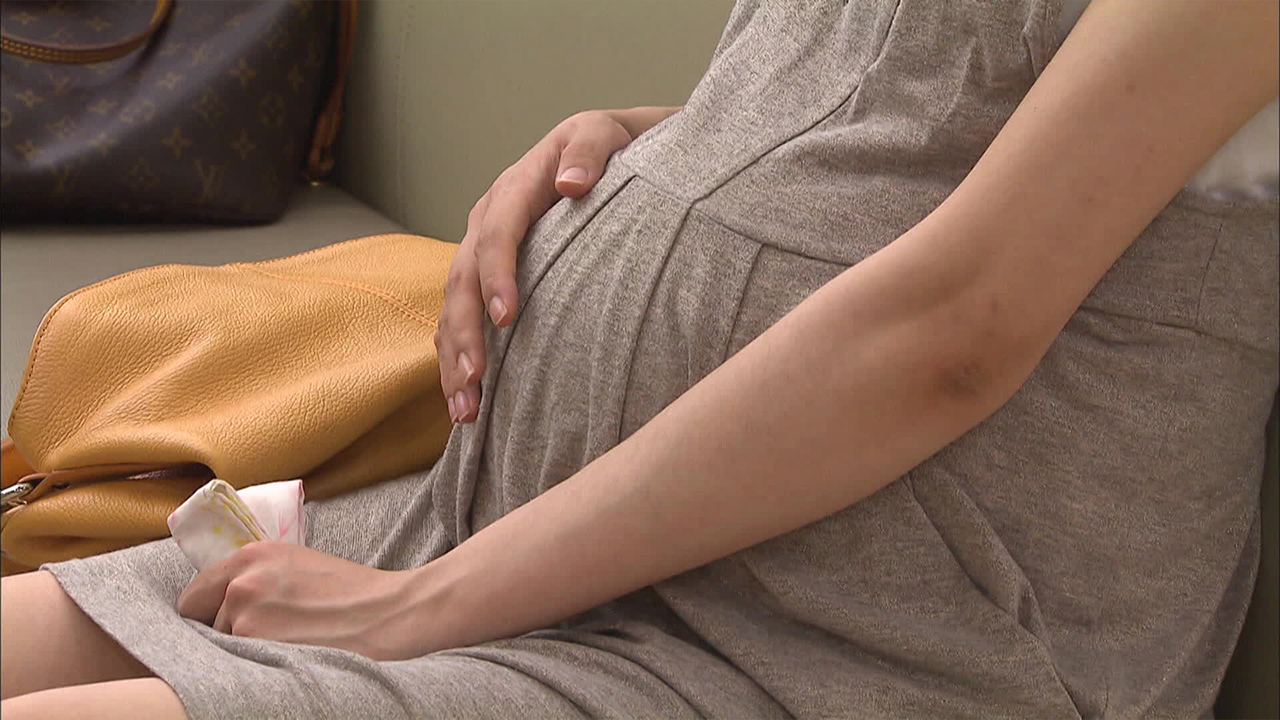Treatment process for infertility faces costly challenges
입력 2024.10.10 (10:04)
읽어주기 기능은 크롬기반의
브라우저에서만 사용하실 수 있습니다.
[Anchor]
We continue our series of reports on overcoming the low birth rate crisis.
For couples struggling with infertility who have decided to have children, the treatment process is fraught with challenges.
In particular, the burden of medical expenses is significant.
Although government support is increasing, there are still many non-covered tests and treatments, leading to calls for further support.
Kim Ha-eun reports.
[Report]
A couple, both 36 years old and married for five years.
They received a diagnosis of infertility earlier this year.
After failing two rounds of artificial insemination, they recently began in vitro fertilization.
[Infertile couple/voice altered: "The injections and medications affect hormones, which can cause severe headaches and often lead to poor physical condition...."]
Desperate to have a child, they endure the side effects of hormone injections, but the greater burden is the cost.
The success rate for infertility treatments is around 15% for artificial insemination and about 35% for in vitro fertilization.
While tests and medications to increase the success rate are available, most are not covered by health insurance.
This couple considered undergoing genetic testing, which could increase the chances of implantation by more than double, but ultimately decided against it.
[Infertile couple/voice altered: "(For genetic testing) Sending one embryo costs 300,000 won. If you go over 4 or 5, the cost often exceeds 1 million won...."]
Experts point out that while government support is increasing, it does not extend to treatments that help improve or maintain pregnancy success rates.
[Kim Yong-jin/Professor of Obstetrics and Gynecology at Korea University Guro Hospital: "I believe that the commonly used ovarian stimulation injections should be sufficiently covered. Additionally, various hormones used to maintain implantation should also be supported...."]
Last month, the government decided to promote the inclusion of non-insured medications under insurance coverage as part of its plan to improve infertility support.
To ensure that the decision to have children sees light, more careful support is needed throughout the infertility treatment, pregnancy, and childbirth processes.
This is KBS News Kim Ha-eun.
■ 제보하기
▷ 카카오톡 : 'KBS제보' 검색, 채널 추가
▷ 전화 : 02-781-1234, 4444
▷ 이메일 : kbs1234@kbs.co.kr
▷ 유튜브, 네이버, 카카오에서도 KBS뉴스를 구독해주세요!
- Treatment process for infertility faces costly challenges
-
- 입력 2024-10-10 10:04:16

[Anchor]
We continue our series of reports on overcoming the low birth rate crisis.
For couples struggling with infertility who have decided to have children, the treatment process is fraught with challenges.
In particular, the burden of medical expenses is significant.
Although government support is increasing, there are still many non-covered tests and treatments, leading to calls for further support.
Kim Ha-eun reports.
[Report]
A couple, both 36 years old and married for five years.
They received a diagnosis of infertility earlier this year.
After failing two rounds of artificial insemination, they recently began in vitro fertilization.
[Infertile couple/voice altered: "The injections and medications affect hormones, which can cause severe headaches and often lead to poor physical condition...."]
Desperate to have a child, they endure the side effects of hormone injections, but the greater burden is the cost.
The success rate for infertility treatments is around 15% for artificial insemination and about 35% for in vitro fertilization.
While tests and medications to increase the success rate are available, most are not covered by health insurance.
This couple considered undergoing genetic testing, which could increase the chances of implantation by more than double, but ultimately decided against it.
[Infertile couple/voice altered: "(For genetic testing) Sending one embryo costs 300,000 won. If you go over 4 or 5, the cost often exceeds 1 million won...."]
Experts point out that while government support is increasing, it does not extend to treatments that help improve or maintain pregnancy success rates.
[Kim Yong-jin/Professor of Obstetrics and Gynecology at Korea University Guro Hospital: "I believe that the commonly used ovarian stimulation injections should be sufficiently covered. Additionally, various hormones used to maintain implantation should also be supported...."]
Last month, the government decided to promote the inclusion of non-insured medications under insurance coverage as part of its plan to improve infertility support.
To ensure that the decision to have children sees light, more careful support is needed throughout the infertility treatment, pregnancy, and childbirth processes.
This is KBS News Kim Ha-eun.
이 기사가 좋으셨다면
-
좋아요
0
-
응원해요
0
-
후속 원해요
0
















이 기사에 대한 의견을 남겨주세요.